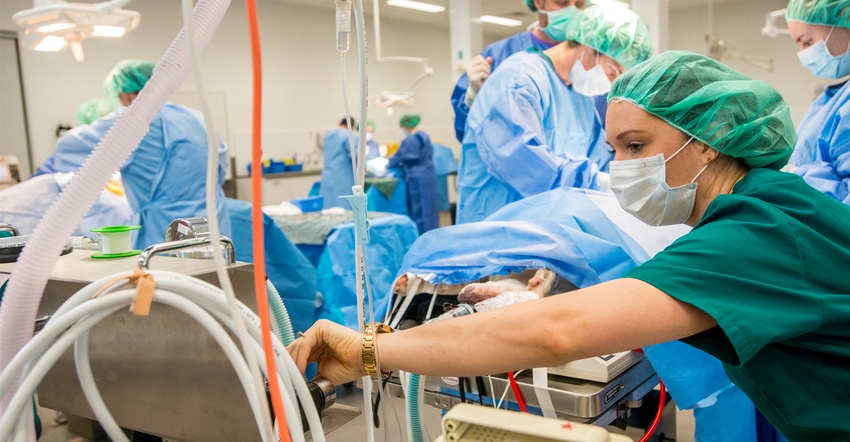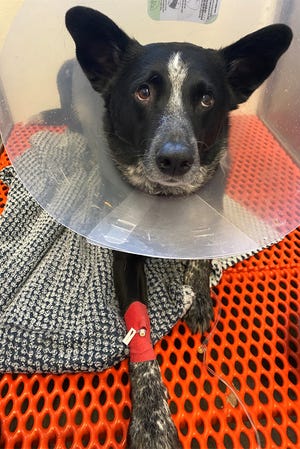March 11, 2022

A trip to the veterinarian often means a sick animal and an expensive bill. Emergency calls might be due to an injured horse, a dog ingesting something it shouldn’t or a cow with a dystocia. Until recently, I had been lucky that my animals only needed the vet for routine checkups and vaccines.
Then in early March, it was a different story. I’ve talked about my “cattle dog” Ripley before and his lack of enthusiasm for actually working cattle. Ripley was acting sluggish and ignoring his food. I thought nothing of it at the time since he’s a picky eater. But a few days later he began vomiting and became more lethargic.
I took Ripley to an urgent care visit at the vet, where I assumed he’d have bloodwork done and be right back home with me. Turns out, he was in acute renal distress, with a severe hormone imbalance and blood levels that required intervention. Ripley was admitted to a clinic across town and started on IV fluids and antibiotics.
 UPSET DOG: A short trip to the vet for an upset stomach turned into an autoimmune disease and a weekend of IV fluids for my cattle dog, Ripley. (Sarah McNaughton)
UPSET DOG: A short trip to the vet for an upset stomach turned into an autoimmune disease and a weekend of IV fluids for my cattle dog, Ripley. (Sarah McNaughton)

In the past six years of his life, Ripley never had a health problem — let alone kidney failure. A call from the vet the following morning led to some unexpected news: Ripley had a rare type of autoimmune disease that caused the severe hormonal imbalance. Essentially, his kidneys weren’t doing their job.
When I bought him as a puppy, I was happy to hear that cattle dogs have relatively few genetic health conditions, so hearing of his rare autoimmune disease was quite a shock. The disease itself is easily managed and has little to no effect on his quality of life or lifespan. He is now healthy and happy at home, playing his favorite role of “office dog.”
Lucky for a good local vet
Ripley’s emergency visit made me realize how lucky I am to live in in Bismarck, N.D., and have a great clinic of veterinarians and professionals nearby. Many rural areas are not that fortunate. Statistics have shown the high rate of burnout and suicides within the veterinary field, further contributing to vet shortages in some areas.
The veterinary field is a tough one to be in — with its difficult hours and cases, verbal abuse from animal owners, and the constant emotional load associated with the job. Rural locations are often worse off, with more patients and fewer veterinarians. A story I wrote last summer on shortages of rural veterinarians opened my eyes to the difficulties vets experience.
In a more urban city like Bismarck, the options for finding a vet clinic on short notice was easier, with urgent care and emergency hours and veterinarians in place to take care of special needs. It took only a few minutes to drive to the animal clinic, as opposed to an hour or longer.
For many, easy access to veterinary services are a luxury. Be sure to thank your veterinarians, and hug your dogs a little closer.
You May Also Like




